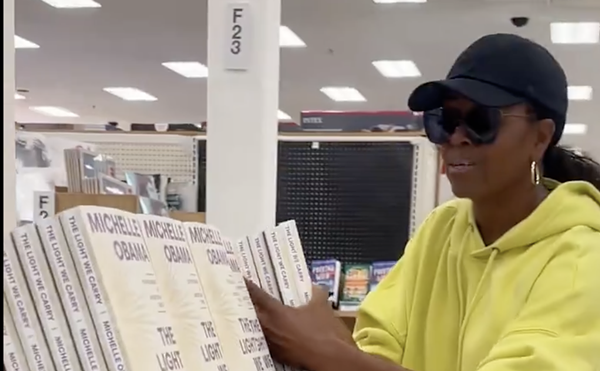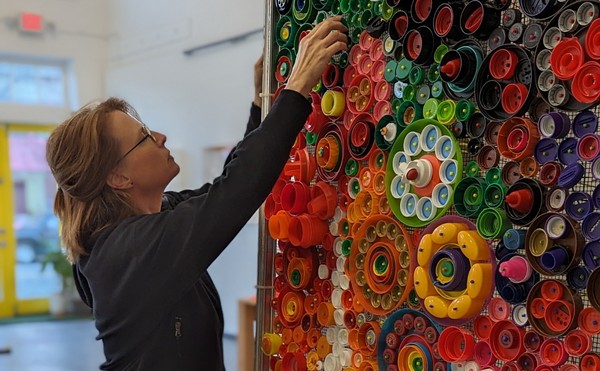OTSL is unique among American opera companies because in addition to doing a couple of standard operas by bankable composers such as Verdi or Puccini every season, they stage one newly written or rarely performed modern work. When Jonathan Dove's Flight opens later this month, it will be OTSL's 31st world or U.S. premier in 27 years. There isn't another opera company in America that consistently takes that kind of chance.
So that new work had better hook the audience. Flight was inspired by the true story of an Iranian political refugee who lost his travel documents and lived on handouts in a waiting room at Paris' Charles DeGaulle airport for years. He believed he'd be deported or arrested if he left. Similarly, Dove's opera imagines the strange adventures of ten travelers stranded overnight in an airport.
MacKay insists that OTSL must take chances on these new operas. "We need the press attention," he says. That's because OTSL can't shell out big bucks for singers. So MacKay lures first-rate young talent here with promises of serious notice in the opera world. "Twenty percent of our tickets are sold outside the St. Louis area," he asserts. That includes 40 states and nine foreign countries. No one in New York cares about some Midwestern opera's umpteenth staging of La Bohème. But OTSL premieres attract newspaper reviewers from such cities as New York, London, Paris and Chicago. Because the company performs in repertory, critics can stay in town four days and report on all four shows. It's an opportunity for publicity the agent for an aspiring diva can't pass up.
Puccini died in 1924. He can't complain if a director decides to save a little cash on scenery by resetting Madame Butterfly as a story about a Dierbergs sushi roller. But working with living composers can get hairy. "We have to define everything up front," says MacKay. "Duration, characters, cast size ... we're pretty rigid about orchestra size."
Even so, things don't always work out as planned. Maggie Stearns, OTSL's longtime communications director, wrote the libretto for the 1999 production of The Merchant and the Pauper. "It's a collaborative, evolutionary process," says Stearns. "[Composer] Paul Schoenfeld kept coming back with more parts, adding voices." Sometimes collaboration becomes combat. "I had one composer throw a score at me, screaming about wanting his opera produced, not ruined," MacKay remembers.
New music can be a problem, too. "Thirty seconds of Mozart might flow effortlessly through five or six distinct emotions," offers one orchestra member. "In 30 minutes of [modern music], you might be stuck with a single annoying feeling." So OTSL seeks contemporary composers who can keep it harmonic and lyrical. Dove's Flight score is irresistibly airy, warm and emotionally open.
Is it worth it to take all these chances? "If we only played the warhorses," says Stearns, "we'd be in a museum."





